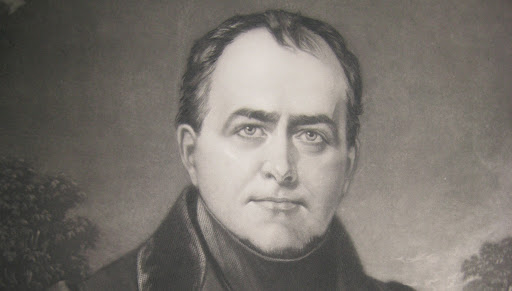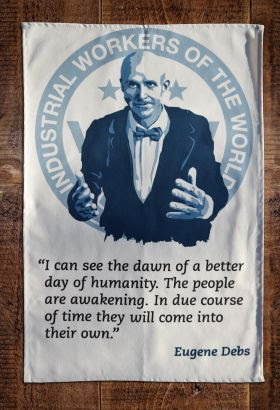Thomas Dorr's Fight for Democracy in the United States of America
Posted by Pete on Nov 5th 2020
On the day of Thomas Wilson Dorr’s birth, we remember a little-known chapter in history of American democracy and what it has to teach us about democratic empowerment today.
Democracy is never 'won'.
Throughout its modern history it’s faced constant pushback from reactionaries. Democratic institutions won by hard struggle then face erosion by would-be autocrats.
This is an annoyingly frequent part of the American story.

Thomas Dorr had a profound solidarity with the working poor.
Bringing Democracy to New England
Jim Crow made the constitutional victories for racial equality meaningless soon after the Civil War.
The opportunities for economic democracy opened up by the New Deal were soon snuffed out by corporate greed.
In 1841, Rhode Island became the epicenter of another fight over the reach of democracy in America.
Unusually, the New England state was still using its colonial charter – from 1663 – as a constitution.
This charter included a property requirement for male voting which by 1829 left 60% of free white men ineligible to vote.
After Andrew Jackson’s (fundamentally limited, racist and sexist) expansion of voting rights in the US, most states in the Union had universal white manhood suffrage by this point. Rhode Island was well behind even this mark.
Discontent among Rhode Islanders followed, but all efforts at electoral reform in the state were blocked.

Democracy at the Dorr
By 1841, a state legislator called Thomas Wilson Dorr (1805-1854) had come to lead a 'People’s Party' in favor of expanding the franchise.
Born today in 1805, Dorr was from a prosperous family of New England industrialists. But his solidarity with the working poor was clearly profound.
In 1840 he helped form the Rhode Island Suffrage Association, from which the People’s Party emerged.
Mobilizing a large coalition of disenfranchised urban workers and Irish immigrants, the Party held an extralegal People’s Convention in October 1841.
Following in the tradition of the Founders at Philadelphia in 1787, the people of Rhode Island drew up a new 'People’s Constitution' which abolished the property bar for white men.
Even though the changes were pretty limited in their demands and still left out thousands from the franchise, this was still an extreme, downward expansion of democratic rights in contemporary Rhode Island, so the state’s landed oligarchy rejected it.
Disputed gubernatorial elections then followed, with Dorr’s supporters declaring him the new Governor of Rhode Island while the establishment picked their own man, Samuel Ward King.
A brief, shooting war followed between the two sides – "Dorr’s Rebellion". It was one of the first major challenges to the post-Independence settlement since Shay’s Rebellion (also in New England) in 1787.
Dorr’s forces were soon overcome, and he died – after a spell in prison for treason against the state of Rhode Island (a conviction later written off) – in 1854.
But his democratic struggle did pay off. Clearly shaken by the mass revolt, the Rhode Island oligarchy at last agreed to ditch their colonial-era charter and proclaim a new State Constitution in 1843 which granted suffrage to all men born in Rhode Island regardless of property and race.

The Fight for Democracy goes on
You'll be receiving this email the day after the 2020 election, 215 years to the day Thomas Wilson Dorr was born.
I do very much hope you’re celebrating the election of a new President, but, from my position, I think the story of Dorr’s Rebellion offers a guiding example to either scenario.
This example isn’t the particular form of democratic expansion the Dorrites fought for, of course. That was hopelessly compromised by the racist and sexist hierarchies which its framers had failed to reject.
The example is that democracy must be continually defended and expanded, because its opponents are stubborn as hell.
While it looks highly likely that Trump has lost this election, this still remains true. The opposition to democracy in the US is much more than just one man.
Like the Rhode Island People’s Party, like abolitionism and the Civil Rights Movement, like Eugene Debs and the Wobblies, lets organize to rebuild, defend, and expand the democratic power won for us by those who went before.
Click the link to browse more radical designs on our website.
